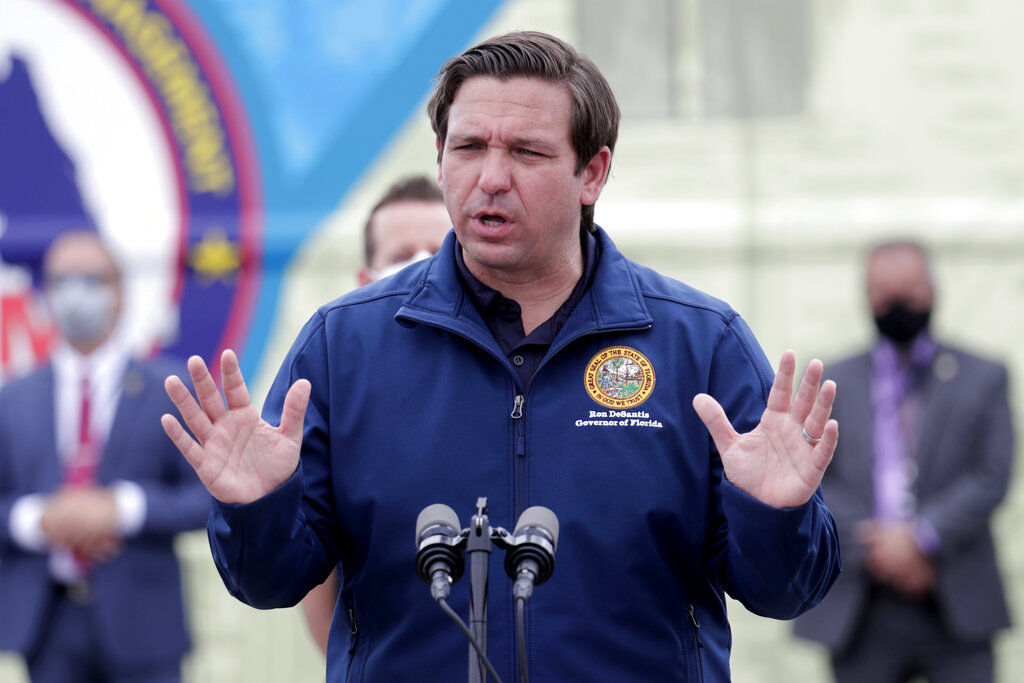Opinion: A way-too-early look at the 2024 presidential nominee field: Part 2
Editor’s note: This column is the second in the “way-too-early look” series. The first can be found here.
Election season can be repetitive and tiresome. Both major parties have their (presumptive) nominees at this point, and we are still six months away from the general election. In the spirit of variety, and continuing upon the first column which focused on potential democratic nominees, here is a way-too-early look at the 2024 presidential candidates for the Republican Party.
Much of the Republican field in 2024 hinges on President Trump’s re-election hopes in 2020. If he is re-elected, the party will likely mirror his strategy in style and popularity (at least among Republicans), with an unapologetically conservative leader, as well as someone who has worked well with the president. On the other hand, should the president fail to secure a second term, Republicans may return to a less polarizing “establishment” candidate. Frankly, I think the field is less interesting without a second Trump term, so I will focus my thoughts here with the assumption that he serves a second term. Historically speaking, he also has advantages, not the least of which is the power of incumbency — since 1900, 14 of 19 presidential incumbents have won reelection. Here are some potential candidates to watch:
Josh Hawley — The senator from Missouri, as well as the youngest senator in Congress, has only served for two years, but don’t let that fool you into thinking he’s inexperienced. Senator Hawley, a Yale law graduate and former attorney general for Missouri, has considerable legal chops. According to his Senate biography, “he fought Obamacare at the Supreme Court — and won — as one of the lead attorneys in the landmark Hobby Lobby case.” He has already made a name for himself as one of the most vocal conservative voices in Congress, and he brings new ideas to the table, including his and Senator Marsha Blackburn’s (R-TN) legislation proposal to move most bureaucracy jobs outside D.C. and closer to communities which their policy affects. I mentioned Senator Hawley in a previous article on the Hong Kong protests as well — not only was he a strong advocate for the people of Hong Kong, he traveled there personally amidst the protests.
Ron Desantis — The current governor of Florida is another candidate to watch. (Including recent presidents George W. Bush and Bill Clinton, 17 presidents served as governors before winning the presidency. Household names like Ronald Reagan, Franklin D. Roosevelt, Teddy Roosevelt and Thomas Jefferson all served as governors as well.) Gov. DeSantis also has legislative experience, serving for five years as congressman until resigning to focus on his governor election campaign. What makes Gov. DeSantis stand out most are his record approval numbers, even though he won the governorship by a razor-thin 0.4% margin. In February, DeSantis’ approval numbers were around 65%, with only 21% disapproving (a net positive of 44%). This beat approval numbers for both Florida senators and President Trump. His approval specific to the handling of coronavirus in Florida is lower, though still positive, with 51% approving and 46% disapproving. DeSantis’ approval numbers are important because they indicate a strong base of support in Florida — the perennial swing state — and they show an ability to receive bipartisan support even in a polarized political environment.
Nikki Haley — The former governor of South Carolina has the experience and the sometimes fiery political demeanor to capitalize after a second Trump term. After serving as governor, she served as the U.S. ambassador to the United Nations for the Trump administration where she was known for her willingness to be straightforward, especially when addressing the U.S. response to North Korean aggression and representing the Trump administration’s staunch support of Israel. On top of her political experience, Haley also enjoys high name recognition. CNN even ran a piece in April of 2018 — while then-Ambassador Haley was still serving at the U.N. — titled “Is Nikki Haley the most popular politician in America?” It cited a Quinnipiac University poll which found high job approval ratings, including favorable ratings from 75% of Republicans, 63% of Independents and 55% of Democrats, respectively. Her job approval of around 55% among Democrats at the time was nearly identical to both Senate Minority Leader Chuck Shumer and then-House Minority Leader Nancy Pelosi. Keep an eye on Haley, as she will enter the race with experience and a track record of high approval ratings in prior positions.
It’s way too early to say which of these three might eventually secure the nomination — but then again, this is a way-too-early take. Look for Nikki Haley to secure the nomination, and perhaps the first female presidency, in 2024.
Sam Paepke is a USU undergraduate studying in the Huntsman School of Business.


Sam, how would you think the nominee field would change if he didn’t get a second term, which seems more likely? Would their be any candidates you’d add in that case? I personally think Nikki Haley would be the 2024 nominee regardless.